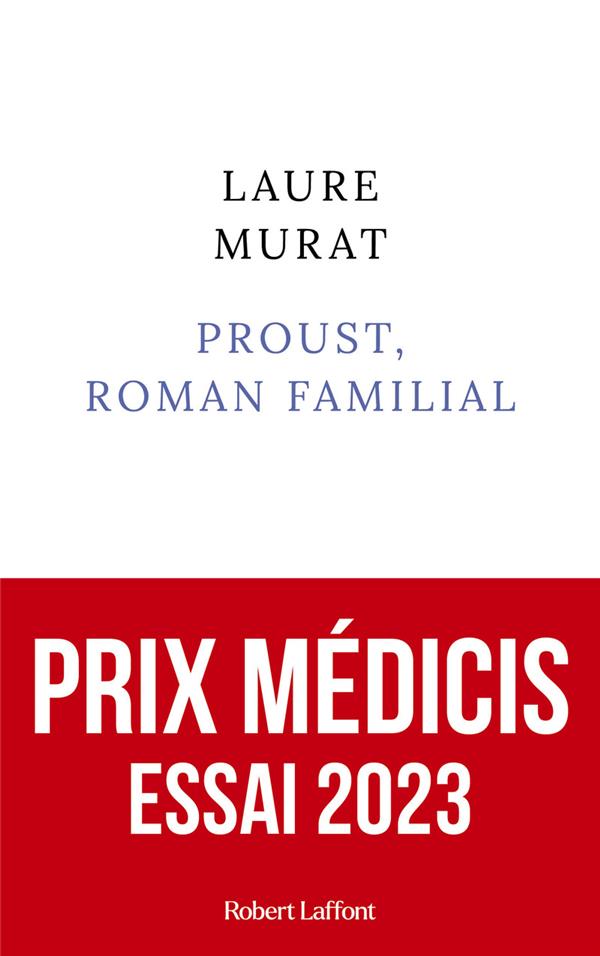Proust : Roman Familial by Laure Murat

Winner of this year’s Prix Medicis Essai 2023
In How Proust Can Change Your Life, Alain de Bottom makes the case that Marcel Proust’s In Search of Lost Time was an invaluable source of insight into the workings of love, society, art and the meaning of existence. De Bottom takes In Search of Lost Time as the basis for a sustained investigation into the power and significance of literature, a project that is not foreign to Laure Murat’s ambition in Proust: Roman Familial, this year’s laureate of the Prix Médicis for nonfiction. Murat’s work is distinguished by managing to sound not only erudite, but also incredibly personal as she explores what exactly is at stake in Proust’s search.
In Proust: Roman Familial, Murat investigates how Proust’s masterpiece has opened her eyes to the French aristocracy, a world into which she was born, and given her the strength to turn her back on it and live according to her own choices and desires. On her father’s side, Murat is a descendant of Maréchal Joachim Murat, grand-duc of Berg who later became King of Napoli, and of his spouse Caroline Bonaparte, sister of Napoléon I. On her mother’s side, Murat is an heir to the de Luynes, connected to Proust’s Duchesse de Guermantes. Proust was a regular at the receptions given by both her great-grandparents, so much so that when Murat reads In Search of Lost Time, it feels to her at times like family anecdotes about distant relatives.
That said, Proust: Roman Familial is everything but a name-dropping family memoir. Not unlike Annie Ernaux, Murat uses her knowledge and intelligence to analyze her ancestors and parents as characters against a background that defines and imprisons them at the same time. Proust’s focus on the aristocracy didn’t come as a surprise to Murat because the aristocracy is the only social class that abstracts time to the point of freezing it. The individual exists only through its inherited social function: it is a world of empty shape, entirely devoted to perpetuating itself through generations.
It is through this Proustian light that Murat comes to understand her mother’s legendary remoteness and her father’s lack of creativity despite his erudition and deep fascination with the arts. To this aesthetic of immutability, Proust opposes movement, changes that embody life and art: “La solidité vient de la fluidité, du mouvement, de la pensée en action, de la prolifération du sens, et non de la stabilité notion illusoire, prise dans l’étau de la permanence et d’une fixité mortifère.”
“Sturdiness comes from fluidity, movement, stream of thoughts, proliferation of meaning; not from stability, an illusionary notion caught in between the vice of permanence and fatal steadiness.”
One should also want to read Proust: Roman Familial for its beautiful sentences alone: “le château est un rêve intérieur que l’on répète sans fin, sans jamais y penser.”
“A castle is an inner dream that we repeat endlessly, without even thinking about it.”
But most importantly, what Murat conveys with her clear, musical and elegant phrasing is the extraordinarily comforting power of In Search of Lost Time — comforting not because it annihilates the cause of despair, but because it transforms it into a subject of study. The “conversion of a catastrophe into a work of art.”
Click here to purchase this book with us.
Proust: roman familial by Laure Murat, éd. Robert Laffon


